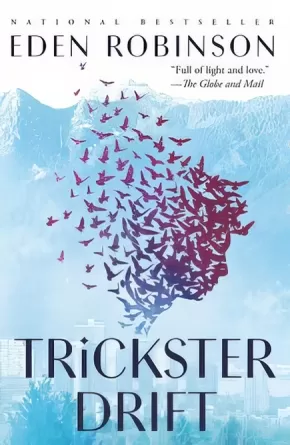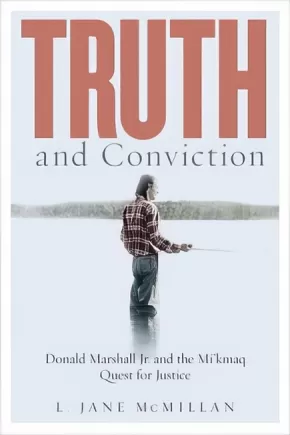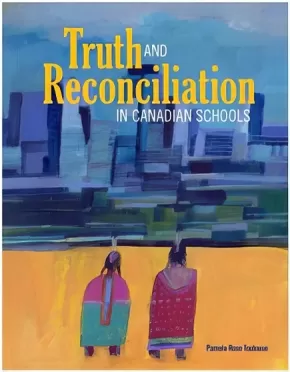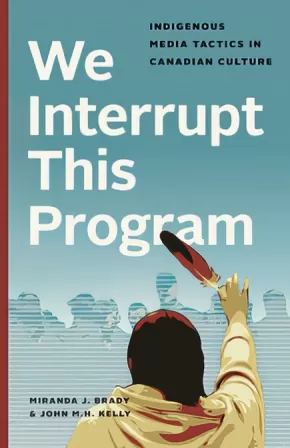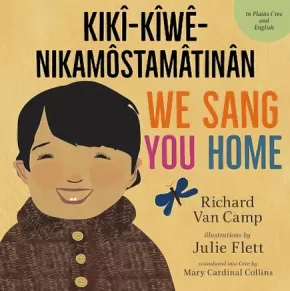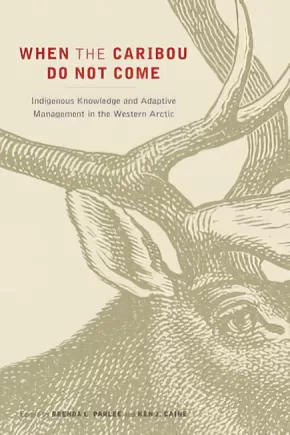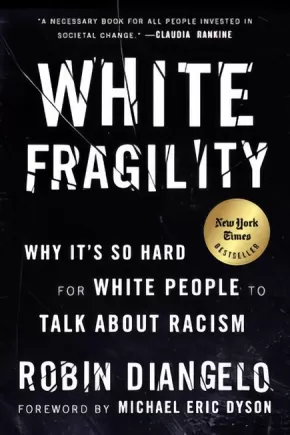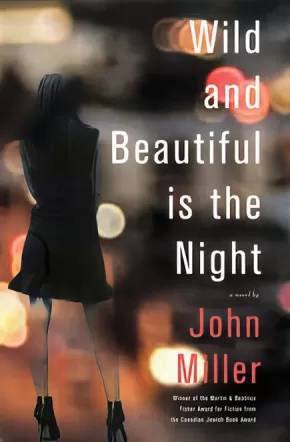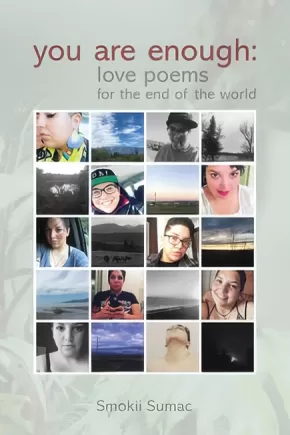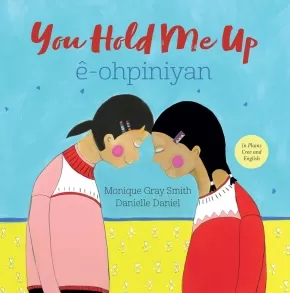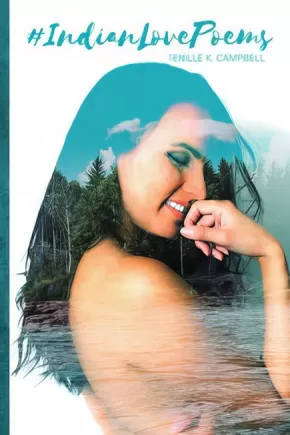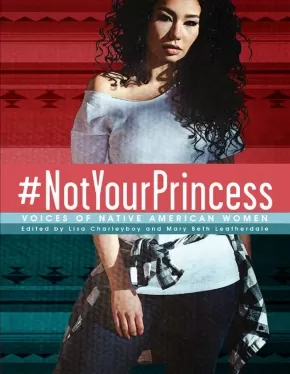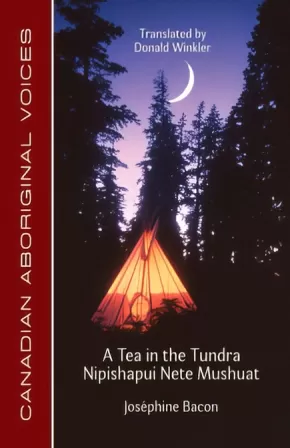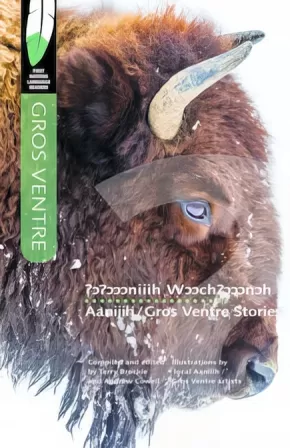
Browse Books for Adults
1291
-
1305
of
1940 Results;
Sort By
Go To
of 130
Trickster Drift (PB)
$21.00
Format:
Paperback
Text Content Territories:
Indigenous Canadian; First Nations; Haisla (Kitamaat);
ISBN / Barcode: 9780735273443
Synopsis:
Synopsis:
Following the Scotiabank Giller Prize-shortlisted Son of a Trickster comes Trickster Drift, the second book in Eden Robinson's captivating Trickster trilogy.
Jared Martin, seventeen, has quit drugs and drinking. But his troubles are not over: the temptation to slip is constant (thanks to his enabling, ever-partying mom, Maggie). He's being stalked by David, his mom's ex--a preppy, khaki-wearing psycho with a proclivity for rib-breaking. And Maggie, a witch as well as a badass, can't protect him like she used to because he's moved from Kitimat to Vancouver for school.
He figures that in order to be safe from both magic, addiction and David, he's got to get his grades up, find a job that doesn't involve selling weed cookies, and learn how to live with his Aunt Mave, who has been estranged from the family ever since she tried to "rescue" him as a baby from his mother. Though she smothers him with hugs, Mave is blind to the real dangers that lurk around them--the spirits and supernatural activity that fill her apartment.
As the son of a Trickster, Jared is a magnet for magic, whether he hates it or not. He sees ghosts, he sees the monster moving underneath his Aunt Georgina's skin, he sees the creature that comes out of his bedroom wall and creepily wants to suck his toes. He also still hears his father in his head, and other voices too. When David finally catches up with him, Jared can't ignore his true nature any longer. And neither can anyone else he loves.
Reviews
“As with the first book, Trickster Drift is most memorable for its set pieces. . . . The mix of sharp comedy, quick character sketches, and unsettling horror is note-perfect.” —Nathan Whitlock, Quill & Quire.
"The great strength of Trickster Drift is that humanity and empathy, but let’s be clear: there are monsters here, both human and otherwise. The novel builds to a climax that is simultaneously thrilling and thought-provoking, one which overturns much of what we have come to know. The third novel can’t come soon enough." — Robert J. Wiersema, The Star
Educator & Series Information
This is the second book in Eden Robinson's Trickster Trilogy. It is preceded by Son of a Trickster.
Additional Information
384 pages | 5.18" x 8.00" | Paperback
Truth and Conviction: Donald Marshall Jr. and the Mi'kmaw Quest for Justice
$34.95
Format:
Hardcover
Text Content Territories:
Indigenous Canadian; First Nations; Mi'kmaq;
Grade Levels: University/College;
ISBN / Barcode: 9780774837484
Synopsis:
Synopsis:
The name “Donald Marshall Jr.” is synonymous with “wrongful conviction” and the fight for Indigenous rights in Canada. In Truth and Conviction, Jane McMillan – Marshall’s former partner, an acclaimed anthropologist, and an original defendant in the Supreme Court’s Marshall decision on Indigenous fishing rights – tells the story of how Marshall’s fight against injustice permeated Canadian legal consciousness and revitalized Indigenous law.
Marshall was destined to assume the role of hereditary chief of Mi’kmaq nation when, in 1971, at the age of seventeen, he was wrongly convicted of murder. He spent more than eleven years in jail before a royal commission exonerated him and exposed the entrenched racism underlying the terrible miscarriage of justice. Four years later, in 1993, he was charged with fishing eels without a licence. With the backing of Mi’kmaq chiefs and the Union of Nova Scotia Indians, he took the case all the way to the Supreme Court to vindicate Indigenous treaty rights in the landmark Marshall decision.
Marshall was only fifty-five when he died in 2009. His legacy lives on as Mi’kmaq continue to assert their rights and build justice programs grounded in customary laws and practices, key steps in the path to self-determination and reconciliation.
This book will appeal to anyone interested in the Donald Marshall story, Indigenous peoples encounters with the law, and social justice issues.
Reviews
"Jane McMillian has written an admirable, engaging, and formidable book about an Indigenous man’s quest for justice against the systemic injustices of Canada." -
Additional Information
288 pages | 6.00" x 9.00" | 10 black and white photographs
Truth and Reconciliation in Canadian Schools (Toulouse)
$31.00
Format:
Paperback
Text Content Territories:
Indigenous Canadian; First Nations; Inuit; Métis;
Grade Levels: University/College;
ISBN / Barcode: 9781553797456
Synopsis:
Synopsis:
In this book, author Pamela Toulouse provides current information, personal insights, authentic resources, interactive strategies and lesson plans that support Indigenous and non-Indigenous learners in the classroom. This book is for all teachers that are looking for ways to respectfully infuse residential school history, treaty education, Indigenous contributions, First Nation/Métis/Inuit perspectives and sacred circle teachings into their subjects and courses. The author presents a culturally relevant and holistic approach that facilitates relationship building and promotes ways to engage in reconciliation activities.
Additional Information
147 pages | 8.00" x 10.50"
We Interrupt This Program: Indigenous Media Tactics in Canadian Culture
$29.95
Format:
Paperback
Text Content Territories:
Indigenous Canadian;
Grade Levels: University/College;
ISBN / Barcode: 9780774835091
Synopsis:
Synopsis:
We Interrupt This Program tells the story of how Indigenous people are using media tactics in the realms of art, film, television, and journalism to rewrite Canada’s national narratives from Indigenous perspectives.
Miranda Brady and John Kelly showcase the diversity of these interventions by offering personal accounts and reflections on key moments – witnessing survivor testimonies at the Truth and Reconciliation Commission, attending the opening night of the ImagineNative Film + Media Festival, and discussing representations of Indigenous people with artists such as Kent Monkman and Dana Claxton and with CBC journalist Duncan McCue. These scene-setting moments bring to life their argument that media tactics, as articulations of Indigenous sovereignty, have the power not only to effect change from within Canadian institutions and through established mediums but also to spark new forms of political and cultural expression in Indigenous communities and among Indigenous youth.
Theoretically sophisticated and eminently readable, We Interrupt This Program reveals how seemingly unrelated acts by Indigenous activists across Canada are decolonizing our cultural institutions from within, one intervention at a time.
This book will appeal to wide spectrum of readers – from students and scholars in communications and media studies to those with a general interest in Canadian art, culture, history, journalism, anthropology, and Indigenous studies.
Reviews
"...the book chronicles the breadth of media interventions employed by Aboriginal media creators, foregrounding Indigenous worldviews, agency and resilience while challenging colonial myths. It is a vital resource for anyone seeking to understand Indigenous cultural expression in Canada in the digital age." — Brad Clark, Journalism and Broadcast Media Studies at Mount Royal University, Canadin Journal of Native Studies, Vol. 38, No. 1, January 2018
"[We Interrupt this Program] provides an analytical perspective to help readers reflect on what types of new interruptions may be brewing – or to plan the interventions themselves." — Greg Macdougall, Briarpatch Magazine, June 2018
Educator Information
Table of Contents
Introduction: Indigenous Media Tactics
1 Media Practices and Subversions: Survivor Testimonials in the Truth and Reconciliation Commission
2 IsumaTV’s “Testimony by Isuma”: Online Expressions of Inuit Culture and Assimilation
3 Redfacing, Remediation, and Other Indigenous ArtTactics: Challenging Cultural Institutions
4 imagineNATIVE as Industry Intervention: Supporting and Growing Indigenous Media Makers
5 Reporting News in Indigenous Communities: A Conversation with Journalist Duncan McCue on Respect and Relationality
Conclusion: Media Tactics Old and New
Notes; Works Cited; Index
Additional Information
220 pages | 5.50" x 8.50" | 14 B&W Photos
We Sang You Home / Kiki Kîweh Nikamôstamâtinân (3 in stock, Out of Print)
$8.95
Artists:
Format:
Paperback
Text Content Territories:
Indigenous Canadian; First Nations; Cree (Nehiyawak);
ISBN / Barcode: 9781459820142
Synopsis:
Synopsis:
In this sweet and lyrical book from the creators of the bestselling Little You, gentle rhythmic text captures the wonder new parents feel as they welcome baby into the world. A celebration of the bond between parent and child, this is the perfect song to share with your little ones.
Internationally renowned storyteller and bestselling author Richard Van Camp teams up with award-winning illustrator Julie Flett for a second time to create a stunning book for babies and toddlers.
Educator Information
This paperback book is a dual-language (English and Plains Cree) edition of the We Sang You Home board book.
Available in hardcover: We Sang You Home (HC)
Recommended for Grades K-2 for the following subject areas: English Language Arts, Indigenous Language, Social Studies.
"We Sang You Home is a gentle story about a parent's unconditional love for a child. The lullaby-style story is a great way to share connections between young readers and their adults." — The Dalai Lama Center
Additional Information
Translated by Mary Collins.
Authenticity Note: The text and images in this story are meant to appeal to and honour a variety of families, not only Indigenous families. This edition's addition of the Cree translation makes it a wonderful resource for Indigenous language learning.
Welcome Song for Baby / Ni Nikamon ‘Tawâw Nipepîmis’
$6.95
Format:
Paperback
Text Content Territories:
Indigenous Canadian; First Nations; Cree (Nehiyawak);
ISBN / Barcode: 9781459820104
Synopsis:
Synopsis:
From renowned First Nations storyteller Richard Van Camp comes a lyrical lullaby for newborns. Complemented with stunning photographs, this evocative is perfectly suited as a first book for every baby.
Educator Information
This paperback book is a dual-language (English and Plains Cree) edition of the board book Welcome Song for Baby.
Recommended for Grades K-2 for these subjects: English Language Arts, Indigenous Language, Social Studies.
Additional Information
Translated by Mary Collins.
Authenticity Note: The images and text in this story are not specifically Indigenous. The addition of the Cree translation to this new edition, however, makes it a wonderful Indigenous language learning resource.
When the Caribou Do Not Come: Indigenous Knowledge and Adaptive Management in the Western Arctic
$32.95
Editors:
Format:
Paperback
Text Content Territories:
Indigenous Canadian; Inuit; Inuvialuit (Mackenzie Inuit); First Nations; Dene; North Slavey (Sahtu); Dinjii Zhuh (Gwich'in);
Grade Levels: University/College;
ISBN / Barcode: 9780774831192
Synopsis:
Synopsis:
In the 1990s, news stories began to circulate about declining caribou populations in the North. Were caribou the canary in the coal mine for climate change, or did declining numbers reflect overharvesting by Indigenous hunters or failed attempts at scientific wildlife management?
Grounded in community-based research in northern Canada, a region in the forefront of co-management efforts, these collected stories and essays bring to the fore the insights of the Inuvialuit, Gwich’in, and Sahtú, people for whom caribou stewardship has been a way of life for centuries. Anthropologists, historians, political scientists, ecologists, and sociologists join forces with elders and community leaders to discuss four themes: the cultural significance of caribou, caribou ecology, food security, and caribou management. Together, they bring to light past challenges and explore new opportunities for respecting northern communities, cultures, and economies and for refocusing caribou management on the knowledge, practices, and beliefs of northern Indigenous peoples.
Ultimately, When the Caribou Do Not Come drives home the important role that Indigenous knowledge must play in understanding, and coping with, our changing Arctic ecosystems and in building resilient, adaptive communities.
This collection is essential reading for multiple groups and interested parties – scientists, scholars, graduate students, wildlife managers, and members and leaders of Indigenous communities.
Reviews
"This book shines a light on the diverse peoples who have come together to share their knowledge and build a new relationship in order to address the very real concern we all have for the wellness of caribou." - Stephen Kakfwi, former premier of the Northwest Territories
"This is a fascinating volume with unusual breadth. Barren-ground caribou are one of the North’s most important biological and cultural resources. When the Caribou Do Not Come blends the perspectives of Indigenous and academic specialists and allows them to retain their own voice. The understandings of human-caribou interaction expressed in this book will lead researchers, Indigenous and non-Indigenous users, and wildlife managers to reflect on current and future practices." -
Additional Information
280 pages | 6.00" x 9.00" | 15 figures, 12 tables, 6 photos, 3 maps
CONTENTS:
Foreword / Fikret Berkes
Introduction / Brenda Parlee and Ken Caine
Part 1: Counting Caribou
1 From Tuktoyaktuk – Place of Caribou / Frank Pokiak
2 The Past Facing Forward: History and Caribou Management in Northern Canada / John Sandlos
3 Recounting Caribou / Brenda Parlee
4 Beyond the Harvest Study / Brenda Parlee, Natalie Zimmer, and Peter Boxall
Part 2: Understanding Caribou
5 We Are the People of the Caribou / Morris Neyelle
6 Harvesting in Dene Territory: The Connection of Ɂepę́ (Caribou) to the Culture and Identity of the Shúhtagot’ı̨nę / Leon Andrew
7 Dene Youth Perspectives: Learning Skills on the Land / Roger McMillan
Part 3: Food Security
8 Time, Effort, Practice, and Patience / Anne Marie Jackson
9 The Wage Economy and Caribou Harvesting / Zoe Todd and Brenda Parlee
10 Caribou and the Politics of Sharing / Tobi Jeans Maracle, Glenna Tetlichi, Norma Kassi, and David Natcher
Part 4: Governance and Management
11 Recollections of Caribou Use and Management / Robert Charlie
12 Ways We Respect Caribou: A Comparison of Rules and Rules-in-Use in the Management of the Porcupine Caribou / Kristine Wray
13 Letting the Leaders Pass: Barriers to Using Traditional Ecological Knowledge in Co-management as the Basis of Formal Hunting Regulations / Elisabeth Padilla and Gary P. Kofinas
14 Linking the Kitchen Table and Boardroom Table: Women in Caribou Management / Brenda Parlee, Kristine Wray, and Zoe Todd
Index
White Fragility: Why It's So Hard for White People to Talk About Racism
$22.00
Format:
Paperback
Grade Levels: 12; University/College;
ISBN / Barcode: 9780807047415
Synopsis:
Synopsis:
The New York Times best-selling book exploring the counterproductive reactions white people have when their assumptions about race are challenged, and how these reactions maintain racial inequality.
In this “vital, necessary, and beautiful book” (Michael Eric Dyson), antiracist educator Robin DiAngelo deftly illuminates the phenomenon of white fragility and “allows us to understand racism as a practice not restricted to ‘bad people’ (Claudia Rankine). Referring to the defensive moves that white people make when challenged racially, white fragility is characterized by emotions such as anger, fear, and guilt, and by behaviors including argumentation and silence. These behaviors, in turn, function to reinstate white racial equilibrium and prevent any meaningful cross-racial dialogue. In this in-depth exploration, DiAngelo examines how white fragility develops, how it protects racial inequality, and what we can do to engage more constructively.
Reviews
“The value in White Fragility lies in its methodical, irrefutable exposure of racism in thought and action, and its call for humility and vigilance.” —The New Yorker
“White Fragility is a book everyone should be exposed to. With any luck, most who are will be inspired to search themselves and interrupt their contributions to racism.” —Shelf Awareness, Starred Review
“A valuable guide . . . While especially helpful for those new to the critical analysis of whiteness, this work also offers a useful refresher to anyone committed to the ongoing process of self-assessment and anti-oppression work.” —Library Journal
“As a woman of color, I find hope in this book because of its potential to disrupt the patterns and relationships that have emerged out of long-standing colonial principles and beliefs. White Fragility is an essential tool toward authentic dialogue and action. May it be so!” —Shakti Butler, president of World Trust and director of Mirrors of Privilege: Making Whiteness Visible
“Robin DiAngelo demonstrates an all-too-rare ability to enter the racial conversation with complexity, nuance, and deep respect. Her writing establishes her mastery in accessing the imaginal, metaphoric mind where the possibility for transformation resides. With an unwavering conviction that change is possible, her message is clear: the incentive for white engagement in racial justice work is ultimately self-liberation.”—Leticia Nieto, coauthor of Beyond Inclusion, Beyond Empowerment
Additional Information
192 pages | 6.00" x 9.00"
Wild and Beautiful is the Night (2 in Stock)
$22.95
Format:
Paperback
Grade Levels: University/College;
ISBN / Barcode: 9781770865105
Synopsis:
Synopsis:
Paulette and Danni grew up miles apart — Paulette in Hamilton and Danni in North Toronto — but they might as well have been worlds apart. Paulette's family emigrated from Jamaica. Danni grew up Jewish in an affluent neighbourhood of Toronto. Now both women find themselves on the streets of Toronto, working in the sex trade.
Paulette is a seasoned prostitute, working to support herself and her addiction. She acts as an unlikely and reluctant mentor and friend to Danni, who is new to the street and whose addiction has set her on a similar path to Paulette. Their paths intersect again and again over the course of a difficult and troubled friendship that sees Paulette begin to pull herself together while Danni manages to survive everything that comes her way. Will her luck run out? Has Paulette learned to make her own luck?
Additional Information
296 pages | 5.50" x 8.12"
you are enough: love poems for the end of the world
$15.00
Format:
Paperback
Text Content Territories:
Indigenous Canadian; First Nations; Ktunaxa (Kootenay);
ISBN / Barcode: 9781928120162
Synopsis:
Synopsis:
In his debut poetry collection you are enough: love poems for the end of the world, Smokii Sumac has curated a selection of works from two years of a near daily poetry practice. What began as a sort of daily online poetry journal using the hashtag #haikuaday, has since transformed into a brilliant collection of storytelling drawing upon Indigenous literary practice, and inspired by works like Billy Ray Belcourt's This Wound is a World, and Tenille Campbell's #IndianLovePoems.
The poems follow the haiku format, often stringing together three lines to tell a story. With sections dealing with recovery from addiction and depression, coming home through ceremony, and of course, as the title suggests, on falling in and out of love, Sumac brings the reader through two years of life as a Ktunaxa Two-Spirit person. This collection will move you as Sumac addresses the grief of being an Indigenous person in Canada, shares timely (and sometimes hilarious) musings on consent, sex, and gender, introduces readers to people and places he has loved and learned from, and through it all, helps us all come to know that we are enough, just as we are.
Awards
- 2019 Indigenous Voices Awards Winner for Published Poetry in English
Additional Information
108 pages | 5.50" x 8.50"
You Hold Me Up / ê-ohpiniyan
$19.95
Artists:
Format:
Hardcover
Text Content Territories:
Indigenous Canadian; First Nations; Cree (Nehiyawak);
ISBN / Barcode: 9781459821750
Synopsis:
Synopsis:
This vibrant picture book, beautifully illustrated by celebrated artist Danielle Daniel, encourages children to show love and support for each other and to consider each other's well-being in their every-day actions.
Consultant, international speaker and award-winning author Monique Gray Smith wrote You Hold Me Up to prompt a dialogue among young people, their care providers and educators about Reconciliation and the importance of the connections children make with their friends, classmates and families. This is a foundational book about building relationships, fostering empathy and encouraging respect between peers, starting with our littlest citizens.
Reviews
"You Hold Me Up is a rhythmic story that reinforces for young readers about reconciliation and the importance of the connections children make with others. The story aims to encourage children to build relationships, foster empathy and encourage respect between peers while considering each other’s well-being in their everyday actions." — The Dalai Lama Center
Educator Information
This is a dual-language book in English and Plains Cree.
Recommended for Grades K-2 for the following subject areas: English Language Arts, Indigenous Language, Social Studies.
This book is also available in English only: You Hold Me Up
This book is available in a board book format in English for younger audiences: You Hold Me Up (BB)
This book is available in English and Anishinaabemowin: You Hold Me Up / Gimanaadenim
This book is also available in French: Tu es là pour moi
Additional Information
32 pages | 9.00" x 9.00"
#IndianLovePoems
$17.95
Format:
Paperback
Text Content Territories:
Indigenous Canadian;
ISBN / Barcode: 9781927426999
Synopsis:
Synopsis:
Covering Indigenous adventures from Wahpole Island to Northern Saskatchewan to the coast of Vancouver, #IndianLovePoems is a poetry collection that delves into the humour and truths of love and lust within Indigenous communities. Sharing stories in search of The One, or even better, that One-Night-Stand, or the opening of boundaries -- can we say medicine wheel -- this collection fearlessly sheds light on the sharing and honesty that comes with discussions of men, women, sex, and relationships, using humour to chat about the complexities of race, culture and intent within relationships. From discovering your own John Smith to sharing sushi in bed, #IndianLovePoems will make you smile, shake your head, and remember your own stories about that special someone.
Reviews
"These are resolutely modern poems written for the great variety of women and LGBTQ2S people of today. They turn the stereotypes of the “Vanishing Indian” and “unchanging cultures” upside down with mentions of campus life, sexting, Tinder, and of course Twitter (the poems have non-serialized numbers with hashtags). There is power in Campbell’s creative use of imagery and everyday language. #IndianLovePoems is a must-read from a very exciting new voice who will undoubtedly become an established name." - Sylvie Vranckx, Canadian Literature: A Quarterly of Criticism and Review
Additional Information
96 pages | 6.00" x 9.00"
#NotYourPrincess
$14.95
Editors:
Format:
Paperback
Text Content Territories:
Indigenous;
ISBN / Barcode: 9781554519576
Synopsis:
Synopsis:
Native women demand to be heard in this stunning anthology.
Whether looking back to a troubled past or welcoming a hopeful future, the powerful voices of Indigenous girls and women across North America resound in this book. In the same visual style as the bestselling Dreaming in Indian, #NotYourPrincess presents an eclectic collection of poems, essays, interviews, and art that combine to express the experience of being a Native woman. Stories of abuse, intergenerational trauma, and stereotyping are countered by the voices of passionate women demanding change and realizing their dreams. Sometimes outraged, often reflective, but always strong, the women in this book will give teen readers insight into the lives of women who, for so long, have had their history hidden and whose modern lives have been virtually invisible.
Reviews
“A stunning anthology of creative writing and art . . . All YA collections will want this."— Alicia Abdul, School Library Journal
Educator Information
Themes: First Nations; Native Peoples; Indigenous; girls and women; biography; multicultural; stereotyping; acceptance; community; prejudice; self-esteem; tolerance
Interest Age 14+ | Grade 9+
The Canadian Indigenous Books for Schools list recommends this resource for Grades 8-12 for these subjects: English Language Arts, Social Justice, Social Studies.
Additional Information
8.5 x 11 | 112 Pages
A Tea in the Tundra / Nipishapui Nete Mushuat
$16.95
Format:
Paperback
Text Content Territories:
Indigenous Canadian; First Nations; Innu (Montagnais-Naskapi);
Grade Levels: 12; University/College;
ISBN / Barcode: 9781772310351
Synopsis:
Synopsis:
In this bilingual English-Innu poetry collection, Joséphine Bacon challenges our traditional notions of culture and perception, landscape and wilderness, the limits of experience, and the nature of human being. With a surreal blend of emotions and memories, A Tea in the Tundra / Nipishapui Nete Mushuat portrays a complex and ever-shifting landscape of possibilities. The author passionately reveals a finely wrought sensibility, which elevates the subtle scenery of life's everyday events.
Educator & Series Information
This book is part of the Canadian Aboriginal Voices series.
Additional Information
96 pages | 5.50" x 8.50" | Translated by Donald Winkler
Aaniiih/Gros Ventre Stories
$24.95
Editors:
Format:
Paperback
Text Content Territories:
Indigenous American; Native American; Gros Ventres (Aaniiih);
ISBN / Barcode: 9780889774803
Synopsis:
Synopsis:
The first-ever collection of Anniiih/Gros Ventre narratives to be published in the Aaniiih/Gros Ventre language, this book contains traditional trickster tales and war stories. Some of these stories were collected by Alfred Kroeber in 1901, while others are contemporary, oral stories, told in the past few years.
As with the previous titles in the First Nations Language Readers series, Aaniiih/Gros Ventre Stories comes with a complete glossary and provides some grammar usage. Delightfully illustrated, each story is accompanied by an introduction to guide the reader through the material.
The Aaniiih/Gros Ventre people lived in the Saskatchewan area in the 1700s, before being driven south during the 1800s to the Milk River area in Montana, along the USA/Canada border.
Educator & Series Information
This book is published in the Aaniiih/Gros Ventre language. An English glossary is provided at the back of the book.
The Canadian Indigenous Books for Schools list recommends this resource for Grades 10-12 for these subjects: English Language Arts, Indigenous Language Studies, Language Studies.
Aaniiih/Gros Ventre Stories is part of the First Nations Language Readers series. With a mix of traditional and new stories, each First Nations Language Reader introduces an Indigenous language and demonstrates how each language is used today. The University of Regina Press’s long-term goal is to publish all 60+ Indigenous languages of Canada.
Additional Information
120 pages | 5.50" x 8.50" | Compiled and Edited by Terry Brockie and Andrew Cowell
Sort By
Go To
of 130

